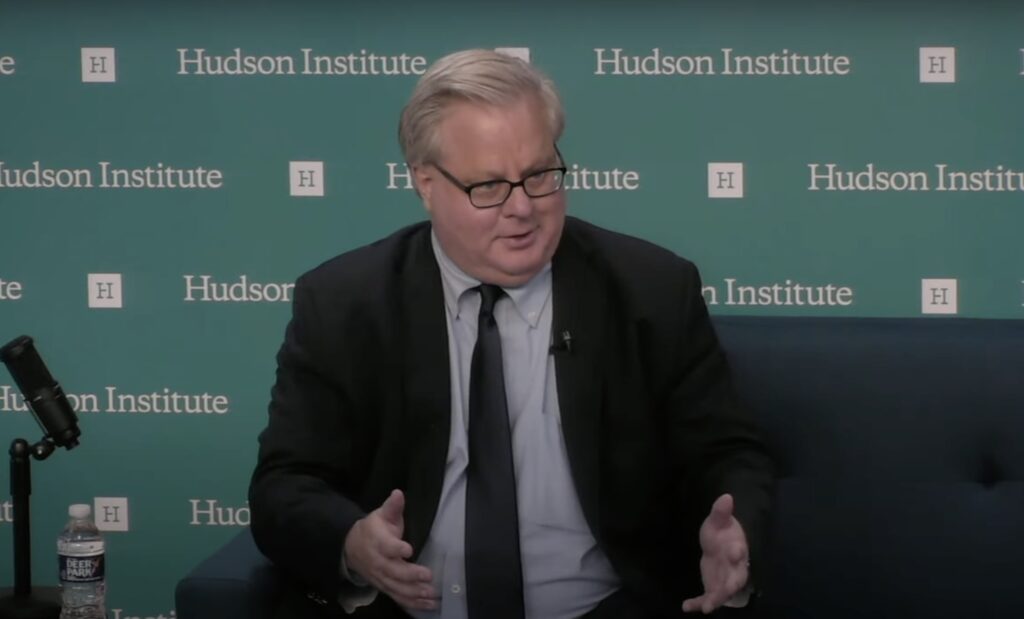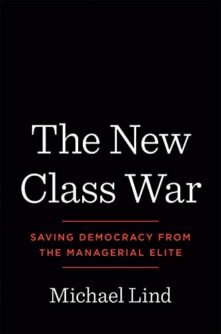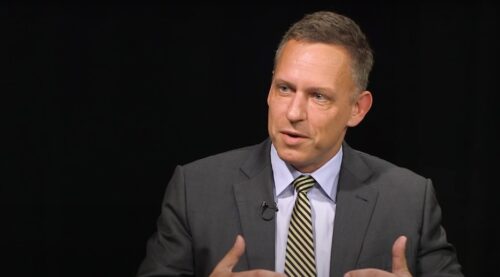The professor, writer, and commentator talks to Michael E. Hartmann and Daniel P. Schmidt about philanthropy and nonprofitdom as part of the managerial elite’s threat to democracy, the difference between the overclass and the upper class, and the proper relationship between grantmaking and politics.
As we’ve noted here, Michael Lind’s most-recent book, The New Class War: Saving Democracy From the Managerial Elite, explicitly includes foundations within its harshly criticized “managerial elite.”
“Scholars like Robert D. Putnam have documented the collapse of the once-flourishing network of American mass-membership civic federations like United Way and the American Legion,” according to Lind in the book. “Overall, the shift of the center of gravity from local chapter-based member associations and church congregations to foundations, foundation-funded nonprofits, and universities represents a transfer of civic and cultural influence away from ordinary people upward to the managerial elite.”
Lind currently is a professor of practice at the University of Texas at Austin’s Lyndon B. Johnson School of Public Affairs. He previously has authored more than 15 nonfiction, fiction, poetry, and children’s books, and he contributes widely to the public discourse with articles in both the academic and popular press, including as a Tablet columnist.
During his wide-ranging career, the clear—and clearly independent—thinker also co-founded the New America think tank and has worked for neoconservative editor Irving Kristol and on the staffs of Harper’s, The New Republic, The New Yorker, and Salon.
Lind was kind enough to briefly expand upon his thoughts about philanthropy with us last week. The just less than 13-minute video below is the first of two parts of our discussion; the second is here. In the first part, we talk about philanthropy and nonprofitdom as part of the managerial elite’s threat to democracy, the difference between the overclass and the upper class, and the proper relationship between grantmaking and politics.
Conservative philanthropy “played a terrific role in promoting intellectual discourse and debate in the U.S.,” Lind tells us. “These fairly small foundations, like the Bradley Foundation, they were dwarfed by the size of Ford and Rockefeller and these huge liberal foundations,” but “they really provided an alternative to the center-left conventional wisdom of the day.”
With typical straight talk, Lind addresses his break with neoconservatism. “My basic criticism of the neoconservative movement in the second half of the ’90s was that it became too closely aligned with the Republican party, and I think this is actually killing the progressive movement right now,” according to Lind.
“When your intellectuals get too close to party operatives, then they can’t think about what kind of society do we want to live in in the next 30 years,” he continues. “When conservative becomes equated with Republican, and progressive with Democratic, then essentially you’re getting the DNC, the RNC” talking points. “That’s why on these talking-head shows, they all say the same things hour after hour. …
“My general view of philanthropy,” he says, “is the longer leash, particularly when you have intellectuals, the better. One of the problems is that there’s less and less general support of the kind that the Bradley Foundation gave very generously to neoconservative publications and think tanks and institutions.”
In the conversation’s second part, Lind talks more about the politicization of philanthropy and advises grantmakers to have a long-term outlook and consider supporting membership organizations and “extra-parliamentary institutions.”







